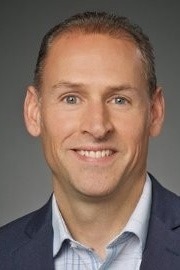In this interview, News Medical‑Life Sciences speaks with Dr. Todd Bauman, Senior Director of Supply Chain, and Chris Povich, Vice President of Automation, at Ascential Medical & Life Sciences about right shoring in life sciences and how medical manufacturers are aligning supply chain strategy with cost, risk, and resilience in today’s complex global environment.

Image Credit: A9 STUDIO/Shutterstock.com
Can you please introduce yourselves and your roles at Ascential Medical & Life Sciences?
Todd Bauman: I'm Dr. Todd Bauman, Senior Director of Supply Chain at Ascential, where I lead strategy focused on cost control, operational risk reduction, and long‑term value across our global medical and life sciences manufacturing network.
Chris Povich: I’m Chris Povich, Vice President of Automation. My role is to support our customers in automating production systems, helping them mitigate risk and scale efficiently across regions while maintaining compliance and quality in medical manufacturing.
What is right shoring, and why is it critical in today's supply chain climate?
Todd: Right shoring is not just a choice between offshoring and reshoring. It’s about aligning your supply chain footprint with your business goals, customer needs, and external pressures such as tariffs or labor shortages. It takes into account the total cost, risk exposure, and resilience over time.
What are the key risks driving manufacturers to reassess their sourcing decisions?
Todd: Cost miscalculations, geopolitical instability, long lead times, and inventory shocks—like we saw during COVID—are major drivers. Ethical sourcing concerns and public perception also play a role. Supply chains optimized purely for labor cost are increasingly exposed.
How do you see automation playing into right shoring strategies?
Chris: Automation is essential, especially when reshoring to higher labor-cost regions. By investing in automation, companies can reduce labor dependence, increase throughput, and improve quality. It also helps speed up workforce training and enables faster scaling of duplicate lines across geographies.
What are some practical right shoring strategies Ascential Medical & Life Sciences has put in place?
Todd: We’ve implemented a regional supply model—leveraging Central American suppliers for Costa Rica, European suppliers for Ireland, and Asian suppliers for Singapore and Malaysia. This reduces logistics risk, regulatory hurdles, and increases resilience by localizing supply where we manufacture.
What are the trade-offs companies face when transferring or duplicating manufacturing lines?
Chris: The two options—line transfer or duplication—come with complexity. Duplicating a line requires reevaluation of obsolete components and sourcing constraints. Labor cost and skill shortages may make full transfers costly, so automation often becomes a necessary investment. Timeline, compliance, and capital cost are all key factors.
How do decision models like landed cost and TCO influence right shoring?
Todd: Landed cost looks at transport and tariffs, but TCO includes overhead, warranty costs, inspection, and reverse logistics. TCO offers a more holistic view, and when tariffs rise—as they have for aluminum from China—it often tips the scales toward reshoring or regionalizing.
What should companies consider when choosing an automation or manufacturing partner in this context?
Chris: Look for a global partner with mature local capabilities. They should offer deep engineering breadth, regulatory knowledge, and regional service support. This reduces costs, travel burdens, and improves time to market. At Ascential, our footprint and flexibility allow for scalable, localized execution across the globe.
What final advice do you have for companies planning their shoring strategy?
Todd: Don’t follow the bandwagon—use your math. Every company’s optimal model is different. Map your risks, evaluate your costs holistically, and align your sourcing strategy with long-term corporate goals. Regionalization isn’t just a trend—it’s a smart path forward.
Speaker biographies
Chris Povich is Vice President of Automation at Ascential Medical & Life Sciences. He brings extensive experience in automation strategy, system integration, and operational scale-up for the life sciences sector. Chris specializes in global project execution, line duplication, and technology integration to enhance manufacturing efficiency and resilience. With a background in engineering and decades of practical leadership, he advises on sourcing decisions, supplier capabilities, and how to navigate regulatory complexities. His expertise supports clients in creating scalable, compliant automation systems aligned with modern right shoring strategies.
sector. Chris specializes in global project execution, line duplication, and technology integration to enhance manufacturing efficiency and resilience. With a background in engineering and decades of practical leadership, he advises on sourcing decisions, supplier capabilities, and how to navigate regulatory complexities. His expertise supports clients in creating scalable, compliant automation systems aligned with modern right shoring strategies.
Dr. Todd Bauman is the Senior Supply Chain Director at Ascential Medical & Life Sciences, where he leads strategic sourcing and operational planning. With 25+ years in supply chain leadership roles, he has worked across medical devices, electronics, and industrial sectors. He holds a Doctorate in Business Administration from Capella University, an MBA from the University of St. Thomas, and a BA in Management from Bethel University. Todd serves on the Board of Directors for the Institute for Supply Management (ISM) and is a certified CSCP from APICS. He frequently speaks on risk management, regionalization, and total cost strategies in complex global supply chains.
devices, electronics, and industrial sectors. He holds a Doctorate in Business Administration from Capella University, an MBA from the University of St. Thomas, and a BA in Management from Bethel University. Todd serves on the Board of Directors for the Institute for Supply Management (ISM) and is a certified CSCP from APICS. He frequently speaks on risk management, regionalization, and total cost strategies in complex global supply chains.
Watch the Full Webinar
About Ascential Medical & Life Sciences
Ascential Medical and Life Sciences specializes in solving the most complex challenges in life sciences and medical device manufacturing. Leveraging advanced automation and a deep bench of expertise in science and technology, Ascential delivers end-to-end solutions, from design and development to testing, contract manufacturing, and scaled production.
Ascential delivers end-to-end solutions, from design and development to testing, contract manufacturing, and scaled production.
Backed by 70+ years of expertise, a team of 2,300+ specialists, and a global footprint of 40+ locations, Ascential works to accelerate innovation, reduce risk, and improve health outcomes worldwide. Whether it’s advancing cell and gene therapies, creating precision automation systems, or developing complex medical devices, Ascential turns revolutionary ideas into commercial-ready products.